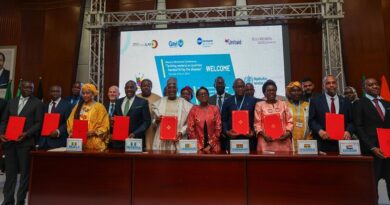International Year of the Reef: Fiji Great Sea Reef nominated as Ramsar site
Over the last three decades, half of the planet’s coral has died under rising water temperatures and ocean acidification. To address this global crisis, global environmental leaders and countries have named this the International Year of the Reef.
Kicking off the International Year of the Reef, Prime Minister of Fiji Frank Bainimarama announced the nomination of large portions of Fiji’s Great Sea Reef as a Ramsar site in an effort to protect it from threats, such as climate change, chemical and waste water run-off from neighbouring urban settlement, and industry.
A Ramsar site is designated under international treaty as a wetland important for the conservation of global biological diversity and for sustaining human life. Under the convention, wetlands are broadly defined and include areas such as coral reefs.
“We are engaged in a battle for the future of these reefs. We approved the nomination of large parts of the Great Sea Reef as a Ramsar site to protect it for future generations,” Bainimarama said. “Today I appeal to every single person on earth to help us. We must replace the present culture of abuse with a culture of care.
Senior representatives from the United Nations and WWF took advantage of the occasion to announce a new collaboration driving an urgent global response to combat the decline of coral
“This is a make or break year for the world’s coral reefs,” said Erik Solheim, Head of UN Environment. “We have a short window when we can act, and the United Nations, WWF, and countries like Fiji are calling on the world to take the steps that will fix the problem this year.”
“A healthy planet depends on healthy oceans which cannot exist without preserving coral reefs- a key pillar of WWF’s conservation work worldwide,” Marco Lambertini, Director-General of WWF International said. “While the world’s oceans are under pressure across the board, coral reefs stand out as needing a global response urgently. Holding a quarter of the ocean’s biodiversity and underpinning the lives and livelihoods of millions of people, the stakes could not be higher for corals – and humanity.”
“Coral reefs shape our islands and are affected by our development decisions, land and sea practices, along with our environmental management measures,” said Kosi Latu, Director General of the Secretariat of the Pacific Regional Environment Programme (SPREP), in his speech at the symposium. “For better management and protection of coral reefs everyone needs to work together to respond to climate change, manage waste, conserve and restore biodiversity and support strong governance, and SPREP has established a two-year campaign, the Pacific Year of the Reef, to enable us to address these critical issues.”
UN Environment also announced the launch of a detailed analysis of Pacific coral reef status from the Global Coral Reef Monitoring Network (GCRMN). The upcoming report, based on data from 128 islands, covering 19 countries or territories and representing over 20,000 surveys shows that Pacific reefs are generally in better shape than many others around the world, but the structure and types of corals in Pacific reefs are changing. These reef changes affect the ecosystem services provided by the reefs, especially their fisheries productivity.
“The growing problem of plastic in our oceans also looms over reef health,” said Solheim. “Corals have been seen to eat microplastics, while larger plastic debris blocks light, introduces toxins, and smothers or breaks corals.”
The top threats to coral reefs are rising temperatures and ocean acidification, pollution of nutrients, sediments and plastics, as well as overfishing and destructive fishing practices.
The International Year of the Reef will encompass the further development and implementation of research, inter-organizational collaboration and high-level political decision making on the issue, to be rolled out through the course of 2018.




